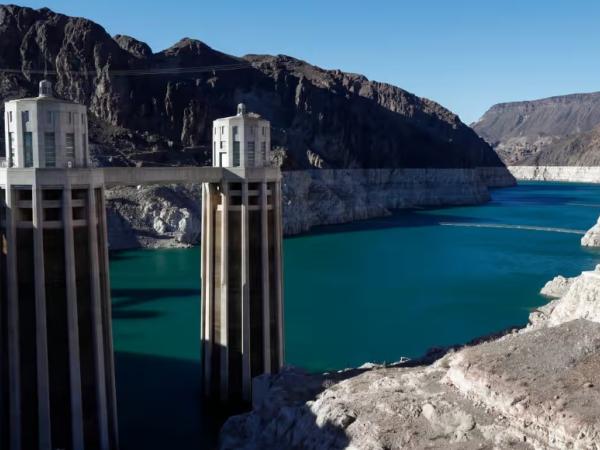
The Colorado River is running low. The picture looks even worse underground, study says.
Famiglietti noted that it is almost impossible to know how much groundwater is ultimately available for humans — and the cost required to access it by drilling ever deeper wells also varies dramatically by area. “What we do know is that water tables are falling, that the ground is subsiding,” he said. “We know bad things are happening.”
“The more surface water we lose from the Colorado River, the more pressure there’s going to be on the groundwater,” Famiglietti said. “And then it becomes a ticking time bomb.”
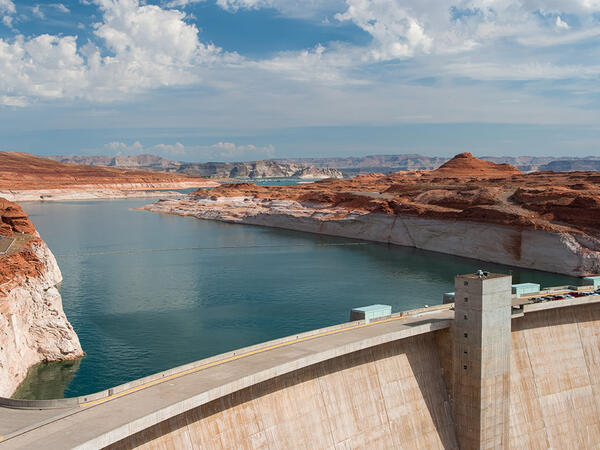
Instead of cuts, federal officials are extending agreements to conserve Colorado River water
The Bureau of Reclamation is extending some contracts to conserve water. It’s the kind of spending that was common under the Biden administration, but stands out now. Sarah Porter directs the Kyl Center for water policy at Arizona State University. She says we shouldn’t read into it too much.
"It does indicate, I think, that the bureau and maybe the Interior Department, understand that the Colorado River is in pretty precarious shape, and that, you know, something needs to be done," Porter said.
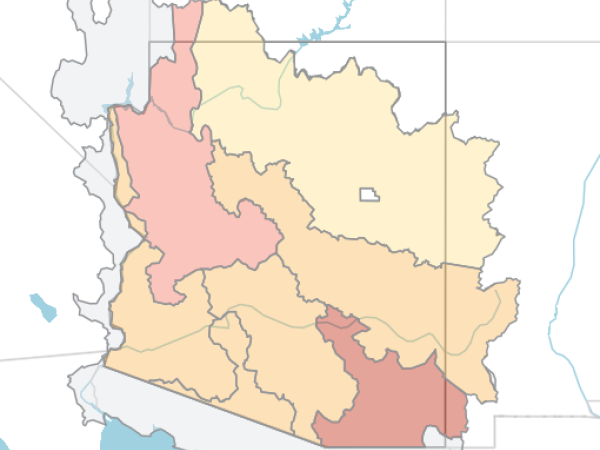
Groundwater is rapidly declining in the Colorado River Basin, satellite data show
“The Colorado River Basin is losing groundwater at an alarming rate,” said Karem Abdelmohsen, the lead author and a researcher at ASU’s School of Sustainability. “If this trend continues, it could lead to severe water shortages that impact not only local farmers and residents but also broader agricultural markets and municipal water supplies throughout the southwestern U.S.”
“Climate change is only exacerbating the stress on groundwater,” said Jay Famiglietti, the study’s senior author and science director for ASU’s Arizona Water Innovation Initiative.
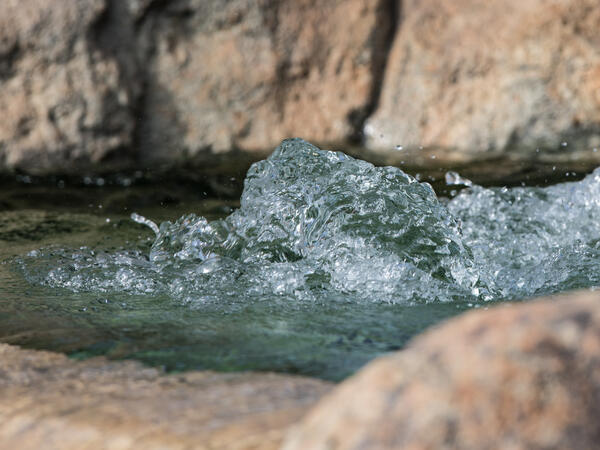
Colorado River basin has lost nearly the equivalent of an underground Lake Mead
“Groundwater is disappearing 2.4 times faster than the surface water,” said Jay Famiglietti, a hydrologist at Arizona State University and the study’s senior author.
“Everyone in the US should be worried about it, because we grow a lot of food in the Colorado River basin, and that’s food that’s used all over the entire country,” he added. “These days, we’re also supporting a number of data centers and computer chip manufacturers, and these are essential to our economy.”
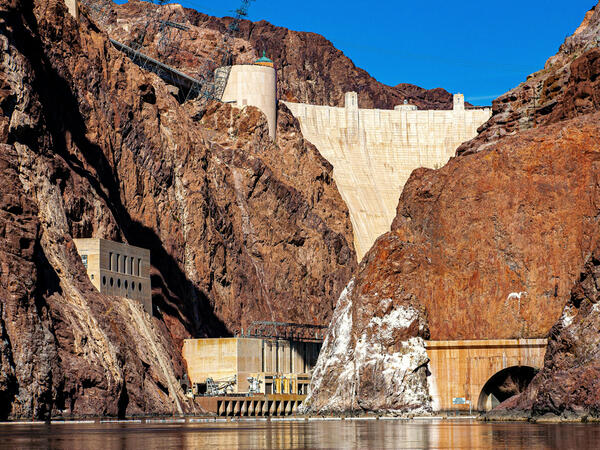
This 'rainy day fund' for the Colorado River incentivizes saving more water
Negotiations continue between the seven Colorado River basin states over new rules dealing with use of the overallocated river, and the clock is ticking. But one area of those talks that’s not getting a lot of attention is the idea of setting some water aside, and the details of how that might happen. Kathryn Sorensen, director of research at the Kyl Center for Water Policy, has been thinking and writing about this and joined The Show to discuss.
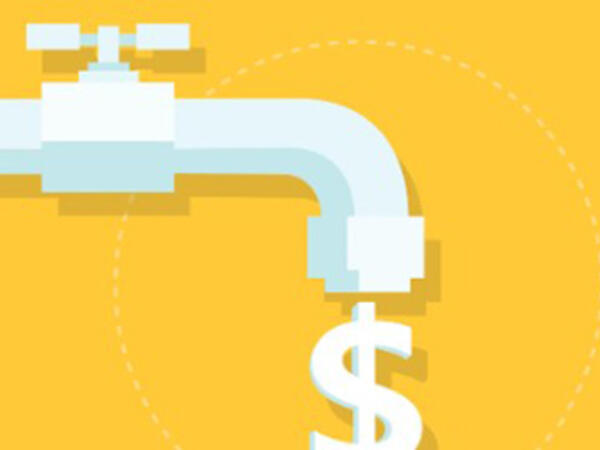
‘Arizona Horizon’ on water conservation, the water crisis and developing policies
The Kyl Center for Water Policy recently released a study on tap water affordability in Arizona which found most water systems could increase their rates and stay affordable for homes in low-income areas. Grant Heminger, Policy and Research Analyst at the Kyl Center for Water Policy, joined “Arizona Horizon” to discuss.
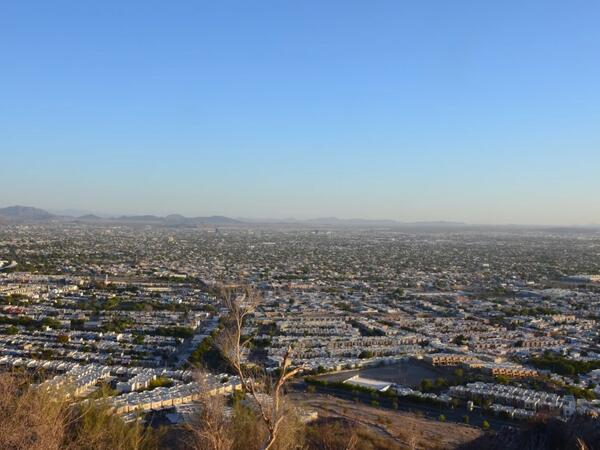
Hermosillo struggles with water waste amid staggering drought
“It’s like a double whammy,” said Arizona State University hydrology professor Enrique Vivoni, who’s studied the Río Sonora watershed for years. “Two seasons back to back where one would expect precipitation to help alleviate the drought have failed. And thus the drought situation has worsened considerably.”
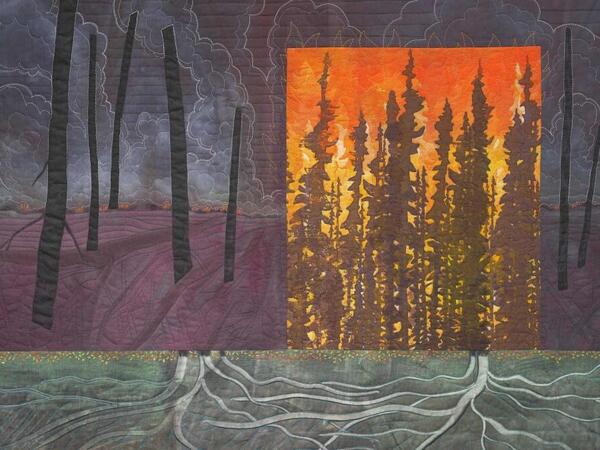
Scientists sound alarm as administration guts vital environmental report
"Dismissing its authors and canceling its development undercuts decades of bipartisan progress," Dave White said. "This leaves the nation more vulnerable to extreme heat, water shortages, floods and other climate-related disasters. This decision is not only reckless but also indifferent to the economic, environmental and human health impacts already occurring."

From Bangladesh to Arizona: Doctoral student poised to make a global impact on water insecurity
As a child growing up in the small village of Bagerhat in southwestern Bangladesh, water insecurity was a part of everyday life for Jobayer Hossain, who graduates this month with his PhD in environmental social sciences from ASU’s School of Human Evolution and Social Change. “The struggle was that there was so much water, or no water at all. With little systems in place to harvest and store water during the rainy season, people are living in a situation with chronic water insecurity,” said Hossain.

AI Data Centers Boom is Draining Water From Drought-Prone Areas
“Is the increase in tax revenue and the relatively paltry number of jobs worth the water?” asked Kathryn Sorensen, a professor at Arizona State University and former water director for Mesa, Arizona. As the AI boom accelerates, so do concerns about its environmental toll. With data centers expanding into drought-stricken regions, the industry faces growing pressure to balance innovation with sustainability.